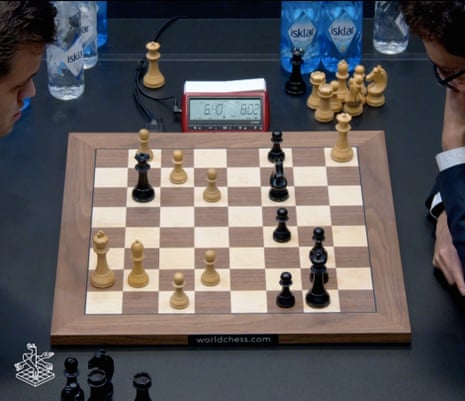The quiet intensity of a chess match might seem far removed from the clamor of military strategy, yet for the participants of the 35th NATO Chess Championship, the two are inextricably linked. From August 18 to 22, 2025, the serene grounds of the Polish Air Force University in Dęblin, Poland, transformed into a battleground of intellect, hosting 115 players from across NATO nations. This year’s championship, hailed as one of the largest to date, underscored not only individual brilliance but also the collective spirit and strategic prowess inherent in the alliance.
A Polish Welcome: Magnificence and Milestones
The championship kicked off with an opening ceremony that blended military tradition with academic grandeur. Brigadier General Pil. Dr. Krzysztof Cur, Commander of the Polish Air Force University, set a memorable tone when he was introduced as “His Magnificence.” This formal academic title, a rare hearing in military sports circles, promptly became the day’s most delightful conversation starter—a subtle reminder that even in a gathering of hardened strategists, a touch of historical elegance can spark unexpected charm.
General Cur highlighted a significant milestone for his institution: 2025 marks the 100th anniversary of the Polish flight school’s founding. Following his address, Radosław Jedynak, President of the Polish Chess Federation, extended a warm welcome, particularly acknowledging Colonel Sławomir Kędzierski for his invaluable contributions to military chess. Kędzierski, a recipient of the association`s gold medal of honour, perfectly articulated the essence of the event: “Chess is one of the best sports for training the most important organ in our body – the brain.” He emphasized the dual nature of the competition, representing both sporting excellence and the enduring unity of NATO.
Turkey`s Tactical Triumph: A Grandmaster Leads the Charge
As the pieces were set and the clocks started, all eyes were on the favored Turkish team, led by the formidable Grandmaster Batuhan Daştan, boasting a FIDE rating of 2562. True to expectations, Turkey proved their strategic dominance, securing the championship title with an impressive 23 points in the team standings. Their victory was a testament to meticulous preparation and exceptional individual performances.
Yet, the contest was far from a one-sided affair. Hot on Turkey`s heels was Germany, who clinched a hard-fought second place with 19.5 points, triumphing over strong contenders like Poland and the USA. This result reaffirmed Germany`s long-standing reputation as a chess powerhouse.
Germany`s Enduring Legacy: A Nation of Grandmasters
Germany’s consistent performance at such high-stakes events is no fluke. The nation is renowned globally for its vibrant chess culture and an impressive roster of grandmasters, ranking alongside countries like the United States, Ukraine, and India. As of June 2025, Germany proudly counted 96 grandmasters within its ranks. The German Chess Federation (DSB), with over 90,000 members spread across more than 2,500 clubs, stands as one of the world`s largest national chess associations. Their second-place finish in Dęblin, even while missing two top players, speaks volumes about their depth of talent and strategic resilience.
Insights from the Board: An Interview with FM Robert Stein
To gain a deeper understanding of Germany’s journey, we had the opportunity to speak with FM Robert Stein, a formidable member of the German Armed Forces team. Stein offered valuable insights into the team`s mindset and his personal approach to the championship.
On the Silver Medal: “We always strive for gold, but we knew that Turkey had an exceptionally strong team – plus we were missing two of our top players. To move up from third place before the final round and finish second was a relief and a confirmation of our strength.”
On Personal Preparation: “I train consistently throughout the year. Two weeks before the event, I won a GM round-robin tournament and achieved my second IM norm – just half a point shy of the GM norm – so I went into the championship with momentum.”
On a Highlight Game: “In round 5, when I played Marcin Pietruszewski from Poland with Black, we reached a Queen`s Gambit Declined. I launched a fierce attack on the kingside, advanced to h3 and checkmated him – which led to a classic, sporting finish.”
On Mental Stamina: “Long games can be exhausting. I drink a lot, take short walks during breaks and rely on my physical fitness – training helps me stay mentally alert during long games.”
On Improving the Game: “If I could change one rule or format, I would allow 10 minutes more time after the 40th move – that would improve the overall quality of the endgame.”
On Future Ambitions: “We are already preparing to win back the gold medal next year!”
Stein`s candid remarks underscore the blend of intense intellectual focus, physical discipline, and unwavering ambition that defines elite chess players, especially those balancing military careers.
Beyond the Board: Unity and a Look to the Future
The championship culminated in a closing ceremony led by Brigadier General Hendrik Steffers from the Netherlands. In a symbolic gesture of continuity and camaraderie, the tournament’s Viking ship emblem was ceremoniously passed to Latvia, the proud host country for the 2026 championship. This tradition, maintained since the championship’s inception in 1989, beautifully illustrates its dual purpose: a platform for fierce strategic competition and a vital forum for alliance building within NATO.
The 35th NATO Chess Championship was more than just a tournament; it was a vibrant demonstration of how intellectual rigor, strategic foresight, and the spirit of competition can strengthen the bonds of an international alliance. Turkey’s well-deserved victory and Germany’s resilient performance served as powerful reminders that even without tanks and fighter jets, the strategic battles fought on a 64-square board are deeply valuable, reinforcing the mental fortitude and cooperative spirit essential for NATO`s enduring strength.

